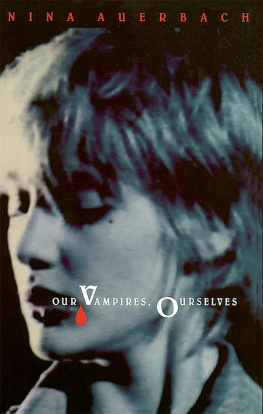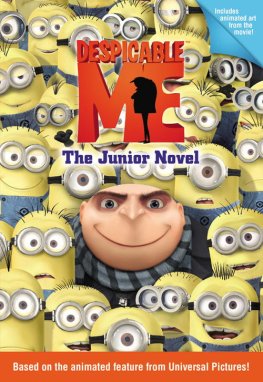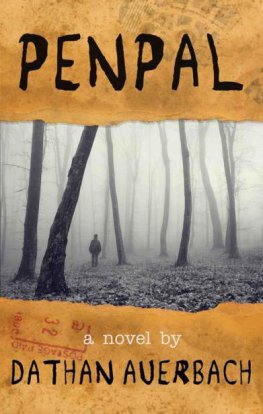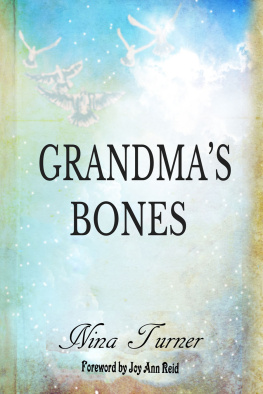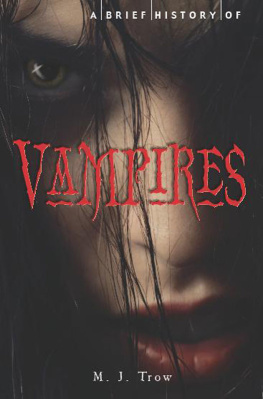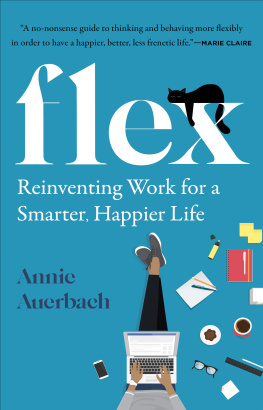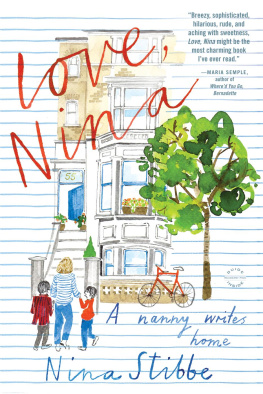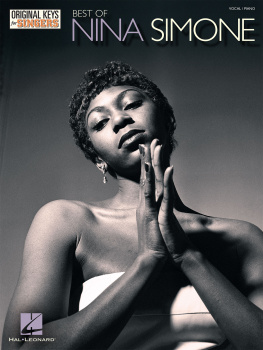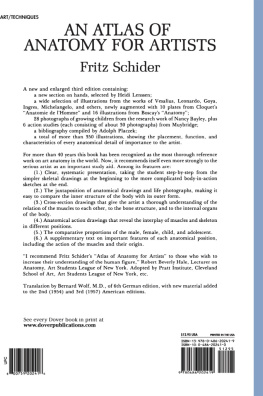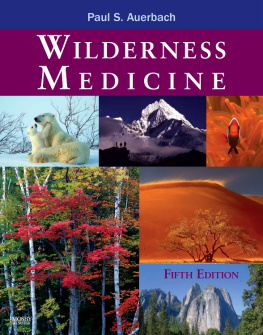Nina Auerbach - Our Vampires, Ourselves
Here you can read online Nina Auerbach - Our Vampires, Ourselves full text of the book (entire story) in english for free. Download pdf and epub, get meaning, cover and reviews about this ebook. publisher: The University of Chicago Press, genre: Detective and thriller. Description of the work, (preface) as well as reviews are available. Best literature library LitArk.com created for fans of good reading and offers a wide selection of genres:
Romance novel
Science fiction
Adventure
Detective
Science
History
Home and family
Prose
Art
Politics
Computer
Non-fiction
Religion
Business
Children
Humor
Choose a favorite category and find really read worthwhile books. Enjoy immersion in the world of imagination, feel the emotions of the characters or learn something new for yourself, make an fascinating discovery.
- Book:Our Vampires, Ourselves
- Author:
- Publisher:The University of Chicago Press
- Genre:
- Rating:4 / 5
- Favourites:Add to favourites
- Your mark:
- 80
- 1
- 2
- 3
- 4
- 5
Our Vampires, Ourselves: summary, description and annotation
We offer to read an annotation, description, summary or preface (depends on what the author of the book "Our Vampires, Ourselves" wrote himself). If you haven't found the necessary information about the book — write in the comments, we will try to find it.
Our Vampires, Ourselves — read online for free the complete book (whole text) full work
Below is the text of the book, divided by pages. System saving the place of the last page read, allows you to conveniently read the book "Our Vampires, Ourselves" online for free, without having to search again every time where you left off. Put a bookmark, and you can go to the page where you finished reading at any time.
Font size:
Interval:
Bookmark:
Nina Auerbach, the John Welsh Centennial Professor of English at the University of Pennsylvania, is the author of Communities of Women; Woman and the Demon; Ellen Terry, Player in Her Time; and Private Theatricals: The Lives of the Victorians. She has coedited, with U. C. Knoepflmacher, Forbidden Journeys: Fairy Tales and Fantasies by Victorian Woman Writers (also published by the University of Chicago Press), and has written many articles about nineteenth-century literature, theater, and culture.
The University of Chicago Press, Chicago 60637
The University of Chicago Press, Ltd., London
1995 by The University of Chicago
All rights reserved. Published 1995
Printed in the United States of America
04 03 02 01 00 99 98 97 96 2 3 4 5
ISBN 0-226-03201-9 (cloth)
ISBN 978-0-226-05618-0 (e-book)
Library of Congress Cataloging-in-Publication Data
Auerbach, Nina, 1943
Our vampires, ourselves / Nina Auerbach.
p. cm.
Includes index.
1. VampiresHistory. 2. VampiresPsychological aspects. 3. Gays in popular culture. I. Title.
GR830.V3A92 1995
820.9375dc20
95-1044
CIP
 The paper used in this publication meets the minimum requirements of the American National Standard for Information SciencesPermanence of Paper for Printed Library Materials, ANSI Z39.48-1984.
The paper used in this publication meets the minimum requirements of the American National Standard for Information SciencesPermanence of Paper for Printed Library Materials, ANSI Z39.48-1984.
Our Vampires, Ourselves
NINA AUERBACH
The University of Chicago Press
Chicago and London
Acknowledgments
For me, the best vampires are companionsperhaps because, long before my guilty obsession with them took scholarly shape, they cemented so many of my friendships. I would especially like to thank Elaine Bernstein, Sue-Ellen Case, Virginia Crane, Betsy Feist, Beth Kalikoff, Peter Ross, Lee Sterrenburg, and Judith Wilt for the horror we have shared.
The University of Pennsylvania is, in its staid way, rich in vampires. My students there taught me that every generation creates and embraces its own. In a course that led me to this book, I learned with the help of my shrewd teaching assistants Deborah Schizer and Bronwyn Beistel to appreciate fiends I at first found suspiciously strange. I could not have imagined this book without the vampires I met through my students John Bartland, Elizabeth Broadwell, Dorothy Burns, Jill Cunningham, and Amy Robinson. My friends and colleagues Susan Foster, Jennifer Brody, Joan Gordon, Jonathan Grossman, Victoria Kirkham, Robert Lucid, Cary Mazer, Thas Morgan, Talia Schaffer, Carroll Smith-Rosenberg, Rebecca West, and Georgianna Ziegler provided invaluable food for this book, though some of them look down on vampiresor claim to.
I am especially grateful to Carroll Smith-Rosenberg and Elaine Terranova, who read drafts of the manuscript with an empathy and wisdom that transcended their initial distaste for its subject. Along with two anonymous monster-loving readers for the University of Chicago Press, my editor, Alan Thomas, provided inspiring encouragement and assistance.
So many friends, students, and associates have given so much to this book that whether they like vampires or not, they bring to life my central idea: that vampirism springs not only from paranoia, xenophobia, or immortal longings, but from generosity and shared enthusiasm. This strange taste cannot be separated from the expansive impulses that make us human.
Introduction: Living with the Undead
We all know Dracula, or think we do, but as this book will show, there are many Draculasand still more vampires who refuse to be Dracula or to play him. An alien nocturnal species, sleeping in coffins, living in shadows, drinking our lives in secrecy, vampires are easy to stereotype, but it is their variety that makes them survivors. They may look marginal, feeding on human history from some limbo of their own, but for me, they have always been central: what vampires are in any given generation is a part of what I am and what my times have become. This book is a history of Anglo-American culture through its mutating vampires.
From the beginning of nineteenth-century England through the close of twentieth-century America, vampires have been popular confederates of mortals. As parasites, they stretch back through folklore to the beginnings of recorded history, but they began their significant literary life in 1816, with the self-creations of Byron. The Byronic Lord Ruthven has something in common with his American cousin today, Anne Rices Lestat, who preys on 1980s and 90s America. Both are enchanting companions; both are media stars; but each feeds on his age distinctively because he embodies that age. Why, for instance, does Ruthven attach himself to mortals, while Lestat is enthralled only by his fellow vampires? The differences that keep vampires alive are my subject.
THIS BOOK TOOK SHAPE between 1989 and 1992the span of George Bushs presidencywhen impalpable fears afflicted America. Nationally, we were assaulted by plenty of devils we knew, but the most potent may have been the devils we had lost: a designated enemy in the seemingly almighty Soviet Union, and a designated patriarch in Ronald Reagan, who during the eight years of his presidency consummately played Americas father. Suddenly stripped of its heroes and villains, shorn of a script for its national morality play, America (as the press orchestrated it at least) turned its fears on itself. Among the most popular targets of a mounting backlash against the social gains of the 1970s were women, especially feminists, and university professors, especially feminists. As all of the above, I found myself living in a climate of intensifying hostile mutterings. In that ugly time, I began to imagine a book about fear.
Initially I was going to call it Fear Itself in tribute to the lost patriarch who had cast a beloved aura over my childhood, President Franklin D. Roosevelt. The fact that FDR was already dead when I was born made him, for me, incorruptible. In the spirit of his wonderful exhortation, The only thing we have to fear is fear itself, I began thinking about fear as a phenomenon that could be contained and understood from without. Encompassing and unwritable, Fear Itself was not yet focused on vampires, but on all terror, which I thought I could explain.
But as fear took on a local habitation, especially in Republican rhetoric, my book narrowed itself down as well. In his 1968 presidential campaign, Richard Nixon had already enlisted FDRs embracing counsel in the service of a less expansive America: Freedom from fear
Vampires and American presidents began to converge in my imagination, not because I think all presidents are equally vampiric (though all do absorb power from the electorate), but because both are personifications of their age. In the spirit of a changing America, I became increasingly implicated in this book as I wrote it: in the American half especially, I saw myself not so much explaining as expressing. My final title, Our Vampires, Ourselves, makes fear an ongoing cultural and personal presence, one no rational, Rooseveltian goodwill can dispel. I am not saying that vampires can be reduced to their political component; they are too mutable to be allegories. But the nervous national climate in which I imagined this book taught me that no fear is only personal: it must steep itself in its political and ideological ambience, without which our solitary terrors have no contagious resonance.
Since I loved vampires before I hated Republicans, this book also reflects my idiosyncrasies, not only as a citizen, but as a woman. As a teenager chafing against the 1950s, an elated student in the 1960s, an academic in the 70s and 80s, I thought of vampires as my confederates, but most women I know are less accepting: I was received with polite revulsion at a Womens Studies symposium when I gave a paper on undeath. The leaders of the group, stalwart fighters all, claimed they never read horrorbecause they found it either too frightening or, in comparison to real fears like abuse, not frightening enough. Jane Austens
Next pageFont size:
Interval:
Bookmark:
Similar books «Our Vampires, Ourselves»
Look at similar books to Our Vampires, Ourselves. We have selected literature similar in name and meaning in the hope of providing readers with more options to find new, interesting, not yet read works.
Discussion, reviews of the book Our Vampires, Ourselves and just readers' own opinions. Leave your comments, write what you think about the work, its meaning or the main characters. Specify what exactly you liked and what you didn't like, and why you think so.

